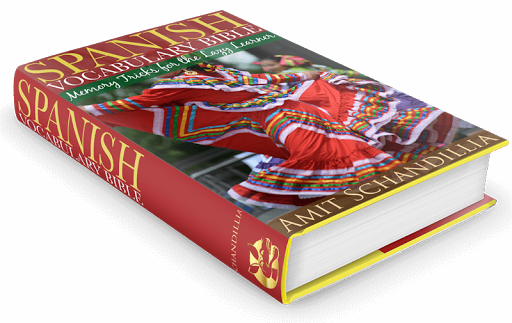A word of caution
 |
| Tiquísmo is as rich as any other form of Spanish Photo credit: Luis Tamayo licensed CC BY-SA 2.0 |
If you choose to proceed, we am hoping you read it all in the sportiest of spirits and take them as an essential aspect of street Spanish which you must be able to recognize even if you choose never to use them. Also, we strongly urge you to refrain from using them in your speech no matter how well-versed you become with Spanish. Just know them and recognize them when someone is using them. And have fun!
What follows is a list of words most prevalent in common tico (Costan Rican) speech for some of the most intimate parts of the human anatomy. While all of them might not be equally offensive or even offensive at all, it is best to discuss each of these words with a Costa Rican native and understand the gravity of its meaning before deciding on whether or not you should introduce it into your conversations. Even if a word is not particularly offensive, it can still potentially make you sound funny and even wreck your image if used incorrectly.
By the way, the word, tico, is a Costa Rican slang for anything Costa Rican and tiquísmo is the word for the colloquial tico speech or dialect. This article should also serve to illustrate that Spanish is a diverse language and has more dialects than just American and Peninsular.
Penis and testicles
Banano – Literally, this word stands for “banana”, the fruit and is not particularly vulgar
Chile – This one, again, is’t too vulgar and literally stands for “chili”
Chorizo – Literally, pork sausage; hope you can see the connotation
Cojones – A crude word for “balls” or “testicles”
Garrote – Literally, this word means “club” and figuratively stands for a “big penis”
Guaba – This one is quite vulgar
Huevos – Literally this is the Spanish for “eggs” and, by extension, also come to mean “testicles” in the vulgar lingo. For the same reason, tener huevos means, “to have balls or guts or courage” not different from the way it’s spoken in English
Leche – Again, officially this word means “milk” but can also stand for “semen” if used in a naughty way
Pene – This one is probably the only sophisticated way to refer to the organ in question as prescribed by Spanish dictionaries
Picha – This is another dirty word for the organ
Pinga – This one is quite vulgar and unsophisticated
Pistol – Officially, this word means the same in both English and Spanish but the Spanish version also refers to the private organ in honor of its shooting capabilities
Pito – This word literally means “whistle” in English and is not terribly offensive
Rosca –This one’s another vulgar term used in Costa Rica
Vena –This is yet another, equally vulgar word often heard in Costa Rican speech
Verga – Again, this one is also a vulgar term from Costa Rica
Vagina
Arepa – In colombia, this is the name of a local corn pancake but in Costa Rica, it can also mean you-know-what
Bicho – This would normally mean “insect” elsewhere except in Nicaragua where it has vulgar undertones
Cachimba – Used for the private female organ in Costa Rica and Nicaragua, this word is also often used as a colloquial interjection in the sense of “fantastic” or “terrific”
Concha – Officially, this is the Spanish for a “sea shell” but most locals prefer it to mean what-can’t-be-named-here
Endija – This one a particularly offensive Costa Rican slang
Mico – This is one more vulgar term often heard in Costa Rican speech
Panocha or panocho – This is yet another dirty word
Papaya – Now, this one’s not too offensive and can be used in regular speech as a mild insult which won’t be taken seriously (of course, not in formal speech!)
Rendija – If you follow the dictionary, this one stands for a narrow slit or opening, for instance, between planks in a wall; the resemblance it bears with the female organ is the reason why it’s also often used in a much dirtier sense
Zanja – Literally, this word means “ditch” but colloquially you know what it also means
Breasts
Busto – This one sounds too similar to the English word, “bust” to mean anything but that
Pechuga – Literally, this stands for the very delicious “chicken breast” and is not a great compliment for a woman
Senos – This is the only politically correct way to refer to them
Tenís – Literally, this one’s the Spanish for “tennis” or a “tennis ball” and is exceptionally vulgar when used as the word for breasts
Teresas – This is another vulgar slang heard everywhere in Costa Rica
Tetas – This is the official, dictionary-endorsed term for “tits”
Tetuda or tetona – These are not-too-vulgar words for “big breasts”
Butt
Ano – This one sounds too similar to the English word, “anus” and hence means the same
Anillo – Literally, this is the Spanish for “ring” but in Costa Rica it means something totally different
Chanchos – Officially, this one means “pigs” but is also a tico slang for “buttocks”
Culo – This is an unsophisticated term for the organ under discussion considered as vulgar in Costa Rica as it is elsewhere
Culantro – This is a Costa Rican play on the word, cilantro (coriander)
Gluteos – This is an unoffensive word for that organ
Hueco del culo – This one is a vulgar Costa Rican slang for one’s “ass”
Nalgas – This is the dictionary-prescribed Spanish for “buttocks”
Trasero – Literally, this one stands for the “rear end”
Tener buen culículum – This expression, a typical example of tiquísmo, is a play on the word, “curriculum” or “résumé”; it essentially means, “to have a good butt,” in reference to a woman’s shapely rear.



.png)